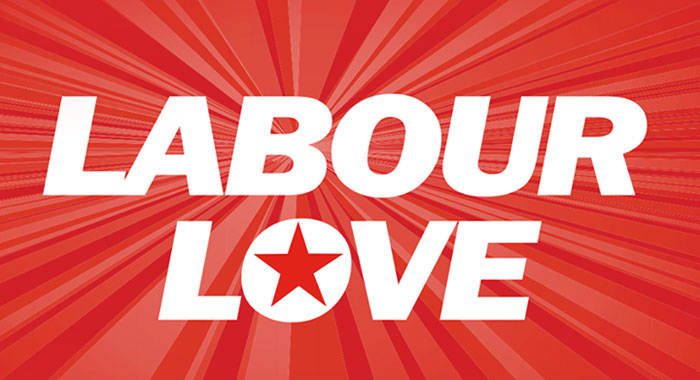The Public Service Union has accused the ruling Unity Labour Party of ignoring trade unions, after “riding their backs” into office in March 2001.
PSU President, Elroy Boucher, told a press conference on Wednesday that there has been complete objection and reluctance to engage in collective bargaining with the unions and the Public Service.
“The Teachers Union signed one agreement in 2005, they have never signed another one. And I will reiterate, the government came into office on the backs of the unions, particularly the Public Service Union and the Teachers’ Union.”
He said the PSU submitted an agreement 10 years ago and it has “never, ever seen the light of day, even to have a discussion or an acknowledgement that you have received the document.
“These practices, these behaviours represent governments who are anti-union,” Boucher said.
He said he has heard Prime Minister Ralph Gonsalves say that he is pro-worker.
“Workers have representatives, which are the unions. You have respect for the union? Demonstrate that, then, you will tell me you are for workers.
“They have made no effort whatsoever to enter into the collective bargaining process with the trade unions. That is frightening. In today’s world, especially coming from what we often hear touted as a labour government that rode the back of the union to get into office and today, they have refused to sit down and negotiate any collective bargaining agreement with the unions.”
Boucher said that the PSU has had some success with statutory corporations, whose boards have been willing to negotiate.
He mentioned an agreement that was recently signed with the National Sports Council, after 10 years of negotiations.
“But very importantly, why is the Unity Labour Party-led government afraid of the collective bargaining process when it comes to public servants?
“Why are they afraid or is it that they have no regard for the trade unions that got them into office? And that is a matter of grave concern to us,” Boucher said, adding that there are many things that can be achieved through collective bargaining.
He said that every time there is a breakdown in salary negotiations, the Unity Labour Party government legislates salaries.
The union leader said that the situation was different under the James Mitchell-led New Democratic Party administration, which the ULP replaced in March 2001.
“And I know persons would say we are talking about politics. But we have to make comparisons. Trade unions had always been able to sit down and negotiate with the Mitchell government. They respected the unions to sit down and have negotiations with them and say what they can do and what they can’t do. But when it comes to this Unity Labour Party government, the moment you sit down and say, ‘No, we have to negotiate’, there is not even a negotiating team set up to negotiate with the unions.”
He said that the union has asked the ULP government to appoint a negotiating team.
“We are tired of this meeting with one person. Put the negotiating team in place, let them negotiate with the trade unions, which is how it ought to be. That has never happened for the past 10 years, because there have been no negotiations.
“In 2015, that is memorable. We started out meeting with the prime minister. Talks broke down and that became a big bacchanal. These are problems we have as trade unions. And I am making the point that if this is truly a labour government, we have to demonstrate that in the way they behave towards trade unions,” Boucher said.







” … why is the Unity Labour Party-led government afraid of the collective bargaining process when it comes to public servants?” is exactly the wrong question. It is the Union that is afraid of the collective bargaining process.
The truth is that the unionized government labour force shows little or no support for the union or its leadership either out of an “I’m all right, Jack” philosophy or because the majority of workers are in lock-step with the Prime Minister and his party.
The real fear is the union leadership’s fear of asking their members for a strike vote which, if successful, they coudl then take to the government saying that if their demands are not met or if some compromise is not reach, the union with call out its workers.
The threat of a strike and the possiblity of a shutdown of government functioning as workers march on the picket line is the way unions all over the world have won their rights when face-to-face negotiation has broken down, as in this case.
But Boucher knows full well that his members would never strike given their current remuneration, benefits, especially pensions, and working conditions that generally exceed those of similar workers in the private sector.
So without the most important worker bargaining chip — a possible strike — hanging over their head, the government has absolutely no incentive to negotiate.
And without the support of its members, unions are forced to accept whatever the employer offers.
The same argument applies to the teachers and other public sector workers.